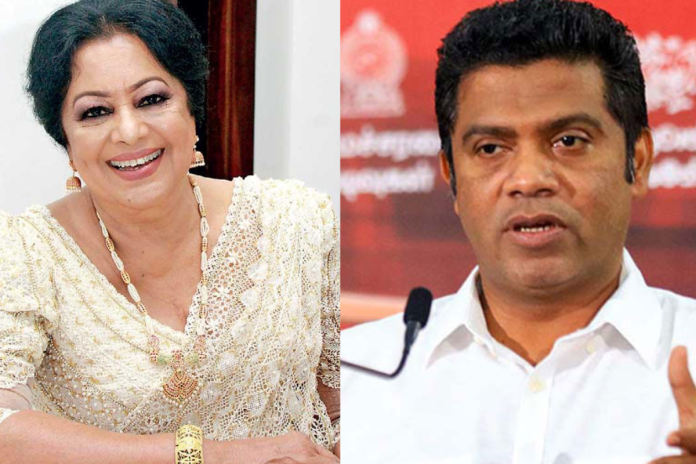Cabinet Spokesperson Nalinda Jayatissa today addressed growing public concern over whether the government accorded full state honours for the funeral of Sri Lankan cinema icon Malini Fonseka, widely celebrated as the “Queen of Sinhala Cinema.”
Responding to a journalist’s question at the weekly Cabinet media briefing, Jayatissa acknowledged the active public discourse, particularly on social media, regarding the nature of the government’s involvement in the late actress’s final rites.
“Now, both the public and social media users are raising a serious question — why wasn’t state honour granted for Malini Fonseka, known across the country as the queen of Sinhala cinema?” the journalist asked.
In response, Jayatissa explained that there are several categories of state involvement in funerals, including full state honours, full state sponsorship, partial state honours, and partial sponsorship. He noted that Fonseka’s funeral received full state sponsorship, with several services typically included under full state honours also provided.
“This may have led to some confusion, with people assuming there was a downgrade or questioning if she received the level of respect she deserved. But it’s important to understand that this decision followed a formal process — and, crucially, it took into account the wishes of Malini Fonseka’s family,” he said.
Jayatissa emphasized that the government coordinated closely with Fonseka’s family, who expressed certain preferences and concerns regarding the proceedings.
“In our view, the state granted the highest level of respect possible, within the framework of both formal procedure and the family’s requests. That’s why I say Malini Fonseka received the maximum tribute a state can offer, in consultation with her loved ones,” he said.
He also responded to comparisons with the funeral of Pandit Amaradeva, which was held with full state honours.
“Some have asked why this wasn’t like what was done for Pandit Amaradeva. But I don’t believe anyone who witnessed yesterday’s proceedings (26 May) would feel that anything was lacking. The respect due to her was fully given,” he said.
Jayatissa further stressed the government’s careful balance between protocol and sensitivity.
“The government was very mindful—both of official procedures and of the family’s wishes. I cannot confirm whether every family member agreed with the decision, but we were attentive to their input,” he added.
When asked about public concerns that Fonseka, as a national figure rather than a private individual, deserved more visible state honours, Jayatissa acknowledged the sentiment.
“She is indeed a national treasure. People are entitled to their views. But as a government, we have to weigh all factors. I firmly believe the state extended the highest possible respect.”
Regarding the terminology used — the shift from “state honours” to “state sponsorship” — Jayatissa said the change may have stemmed from a communication issue or the family’s own request.
“I can’t confirm the exact reason. But I can assure you, the government’s actions reflected the utmost respect for Malini Fonseka,” he said.





